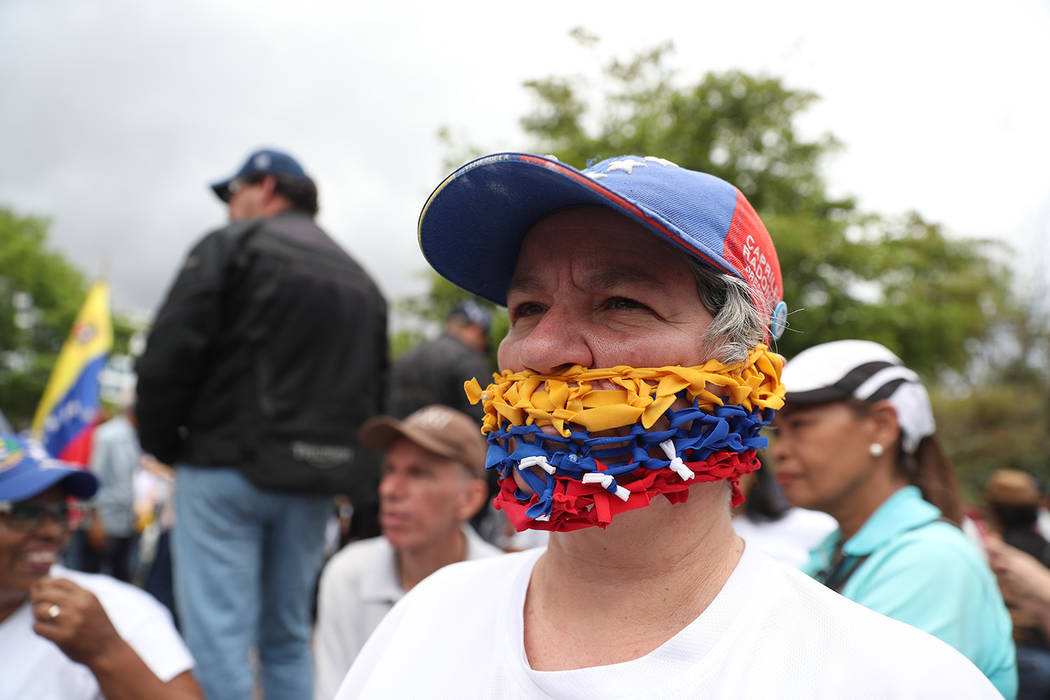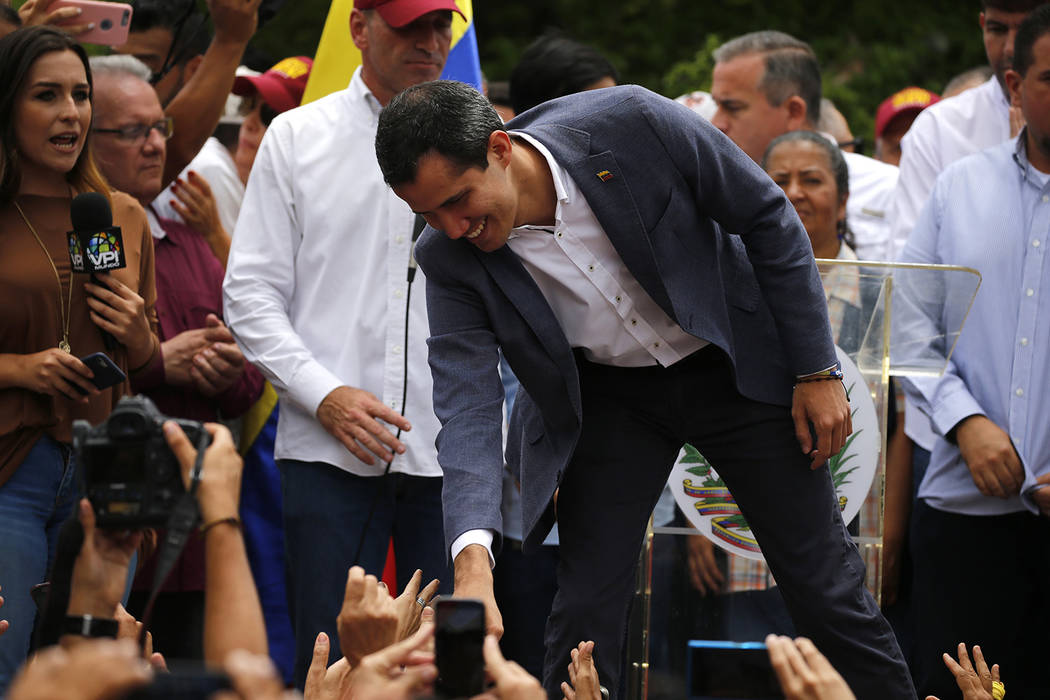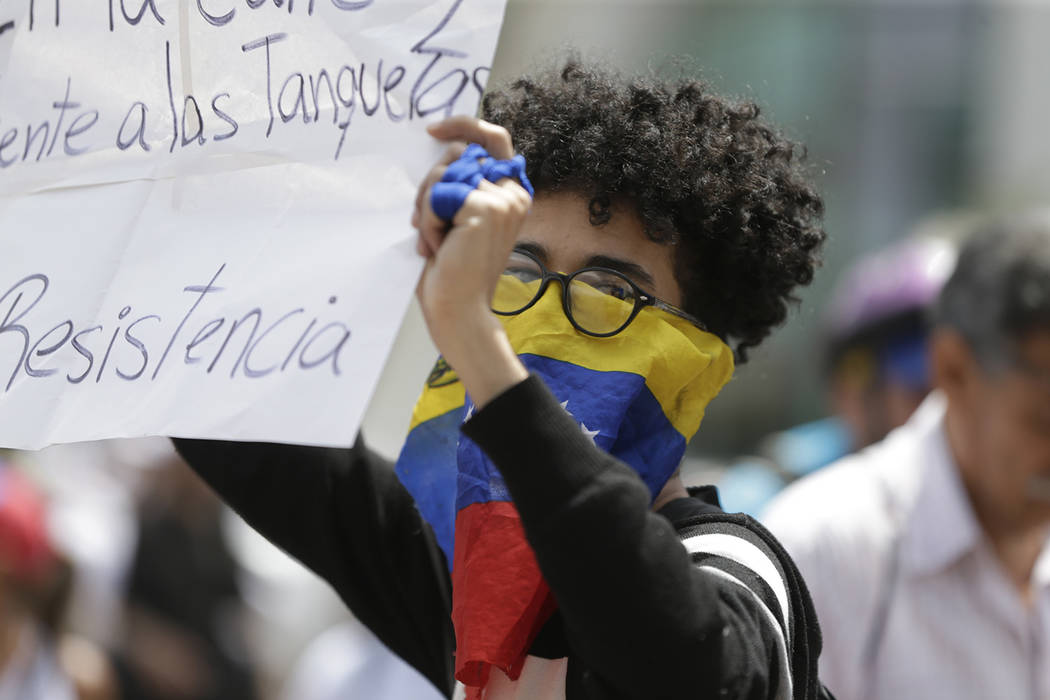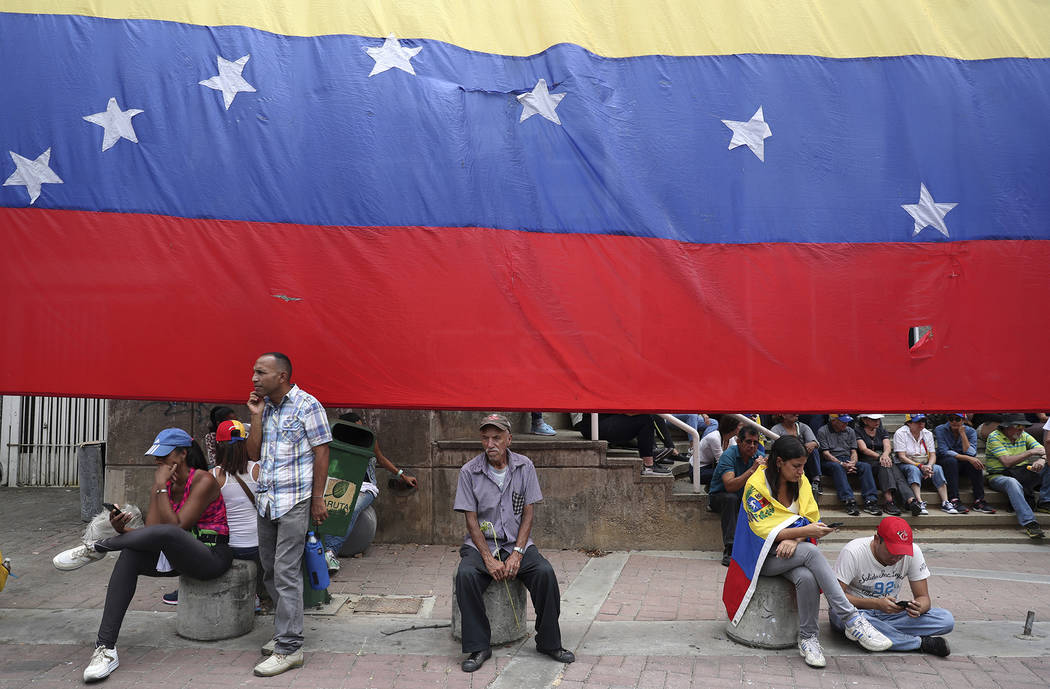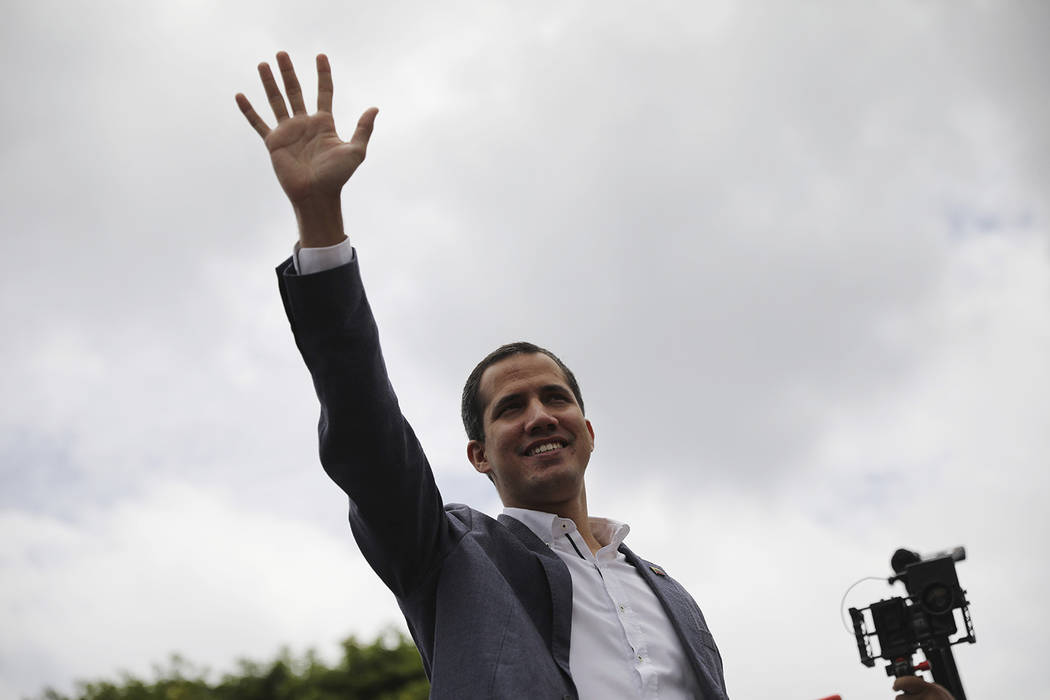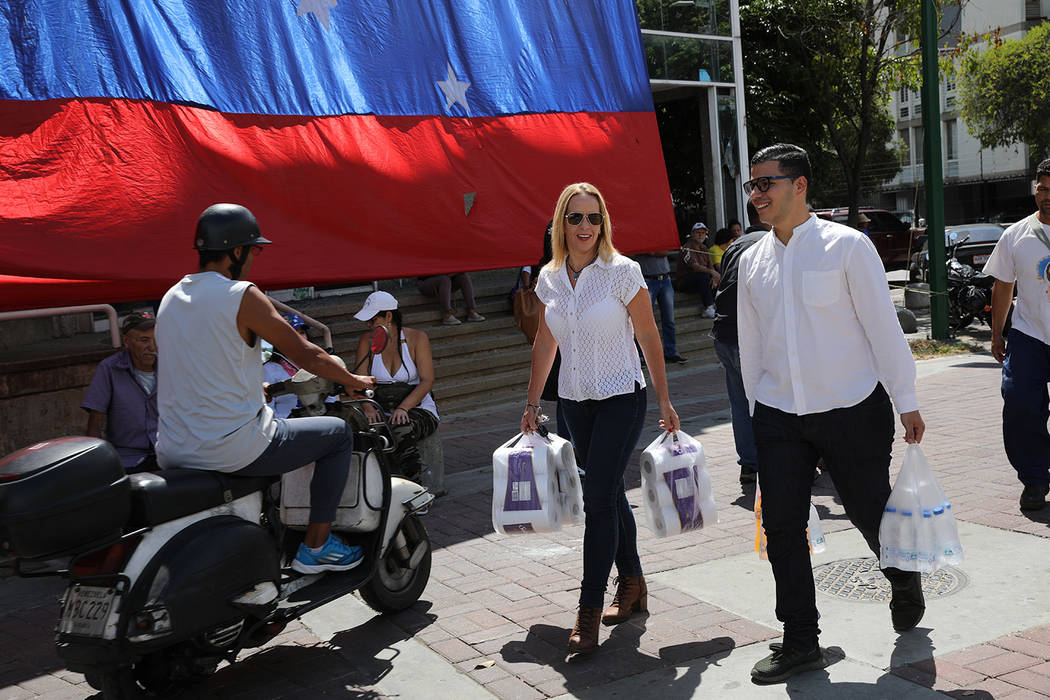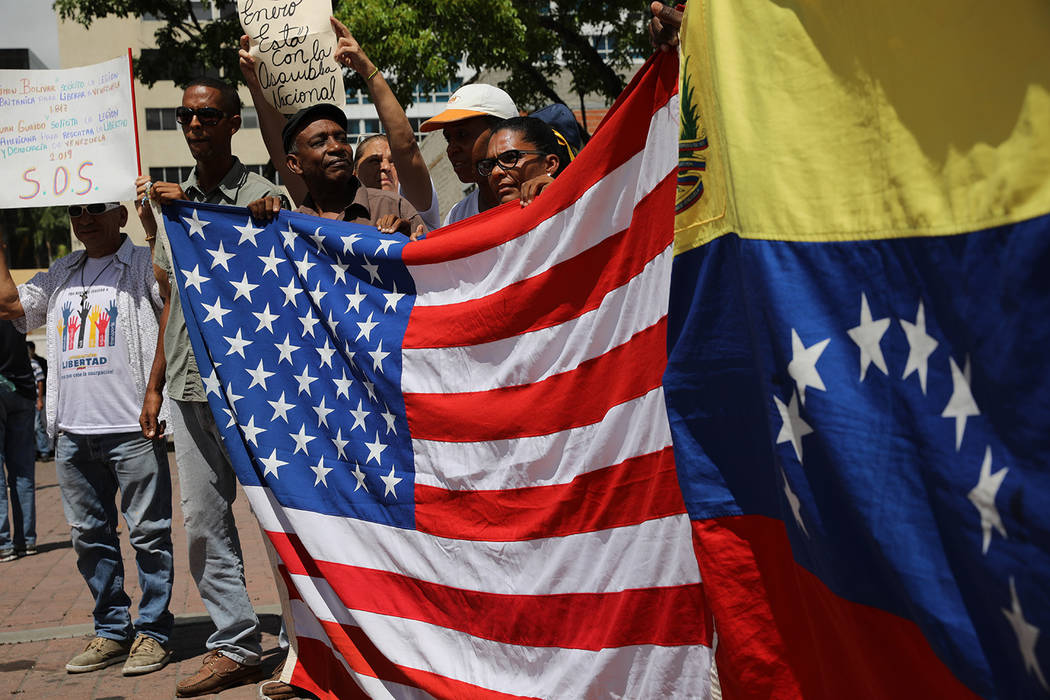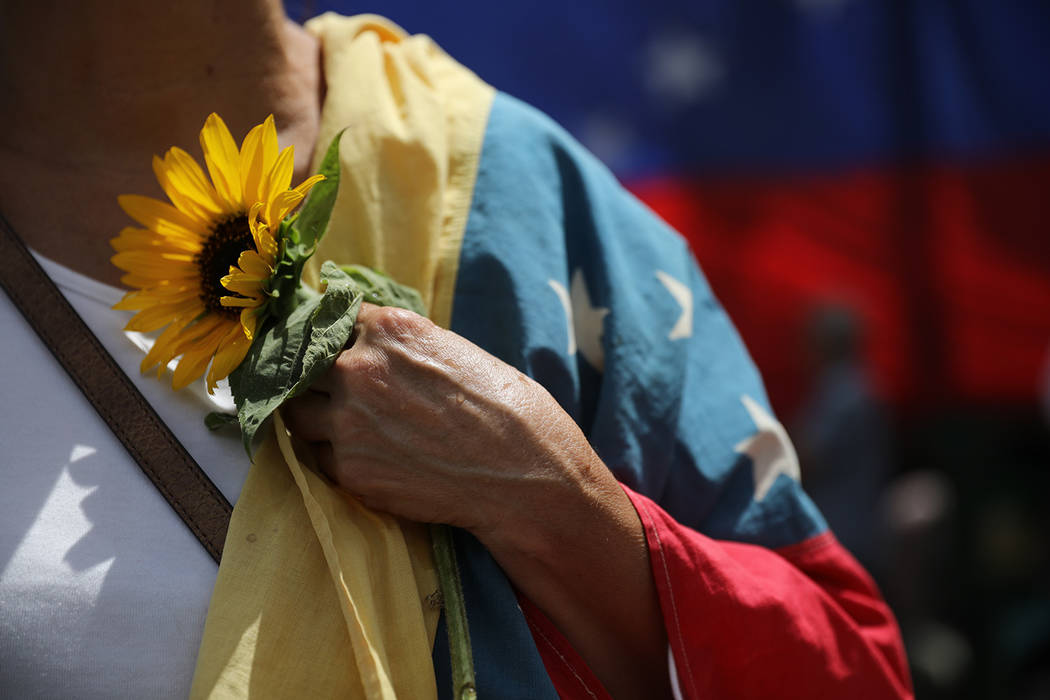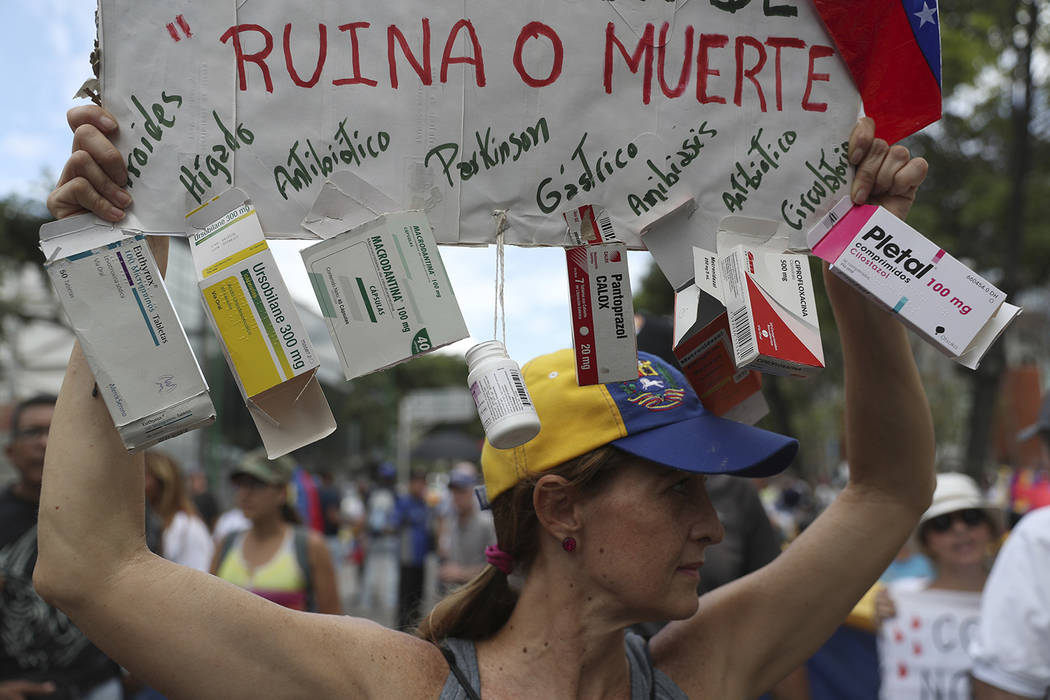Venezuelan opposition leader asks for relations with US military
CARACAS, Venezuela — Venezuelan opposition leader Juan Guaidó on Saturday said he’s instructed his political envoy in Washington to immediately open relations with the U.S. military in a bid to bring more pressure on President Nicolás Maduro to resign.
The leader said he’s asked Carlos Vecchio, who the U.S. recognizes as Venezuela’s ambassador, to open “direct communications” toward possible military “coordination.”
The remarks, at the end of a rally Saturday, mark one of his strongest public pleas yet for greater U.S. involvement in the country’s fast-escalating crisis. While Guaidó has repeatedly echoed comments from the Trump administration that “all options” are on the table for removing Maduro, few in the U.S. or Venezuelan opposition view military action as likely nor has the White House indicated it’s seriously considering such a move.
But with tensions between the U.S. and Maduro running high, the saber rattling is getting louder.
On Saturday, Venezuelan Defense Minister Vladimir Padrino condemned what he said was an illegal incursion by a U.S. Coast Guard cutter into Venezuelan territorial waters. He provided no evidence to back the claim but said that the Venezuelan Navy vessels forced it to withdraw.
“I don’t know if other republics will accept actions like this in their jurisdiction, but we will not,” he said.
Army Col. Amanda Azubuike, a South Command spokeswoman, said a U.S. Coast Guard vessel was conducting a drug interdiction mission in the international waters of the Caribbean Sea. She declined to provide further comment.
In past days, Padrino also denounced what he said were attempts by the U.S. military to sow discord inside Venezuela’s barracks, inviting an angry response from U.S. Navy Adm. Craig Faller, the head of South Command, who said he “stands ready” to assist Guaidó.
“I look forward to discussing how we can support the future role of those (leaders of Venezuelan armed forces) who make the right decision, put the Venezuela people first & restore constitutional order,” Faller said.
As head of the embattled National Assembly, Guaidó launched a campaign in January to oust Maduro, gaining the support of the U.S. and more than 50 nations.
He announced Saturday a forthcoming meeting with U.S. military officials and said that new actions taken by the opposition will seek to “achieve the necessary pressure” to put an end to the Bolivarian revolution launched 20 years ago by the late socialist President Hugo Chávez.
Guaidó has said that as Venezuela’s rightful leader he reserves the right to invite foreign military actions in the same way independence hero Simon Bolivar hired 5,000 British mercenaries to liberate South America from Spain. He says any such help should be considered “cooperation,” instead of intervention, something he has accused Maduro of allowing in the form of military and intelligence support from allies Cuba and Russia.
In recent days, the government has sought to ramp up its own pressure on the opposition with the arrest of the No. 2 leader of the opposition-controlled National Assembly, Edgar Zambrano. Several other anti-Maduro lawmakers have sought refuge in the embassies of foreign nations as the country’s top court announced investigations of Zambrano and nine other members of congress.
Meanwhile, noticeably diminished crowds at opposition protests reflected a growing fear and demoralization that has permeated Guaidó’s ranks of supporters after he led a failed military uprising on April 30. In previous months, thousands of demonstrators heeded his calls to protest.
On Saturday, a modest crowd of several hundred Venezuelans gathered in the capital of Caracas.
“We live in dictatorship,” Guaidó said, urging his supporters to press forward in their campaign to oust his foe. “We don’t have the option to stay at home waiting, but to keep demanding our rights in the streets.”
Guaidó argues that Maduro illegitimately won a second term in rigged elections and has boldly declared himself interim president of Venezuela.
Maduro has maintained control of the military by securing the loyalty of top commanders. He calls Guaidó a “puppet” of the Trump administration and says that the U.S. is supporting a coup to oust him to exploit the country’s vast oil wealth.
“The U.S. Empire aims to end the Bolivarian Revolution,” Maduro tweeted early Saturday, boasting of the country’s education and social security systems. “We show the world that we can do social justice.”
A once-wealthy oil nation, Venezuela has sunk into economic and social collapse marked by soaring inflation and a scarcity of basic goods that has sent an estimated 3.7 million of its citizens to emigrate.



